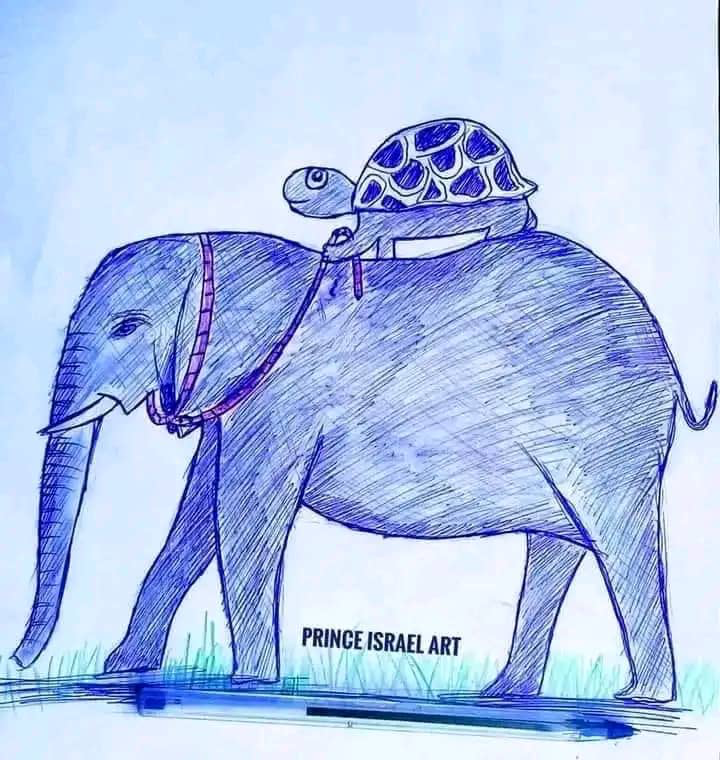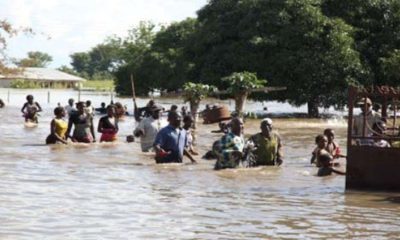This dance has been trending for days. At every nook and crannies of the social media platforms, the dance steps very prominent. Everyone wants to dance that dance of twisting of waist and raising of one leg. Turning thereafter to pursue themselves in a very comical manner.
I have sat down to look at the sense in the dance as popularised by Brain Jotter, all I could see was a gregarious instinct of the masses and the craves to join the bandwagon.
What is Gwo Gwo Ngwo? Gwo Gwo ngwo was just the last part of the lyrics that is filled with rich meaning and moral lessons.
Tired of the hullabaloo of the Gwo Gwo ngwo challenge, I took time to listen to the lyrics from the beginning to the end.
Gentleman Mike Ejeagha is indeed a maestro, who knows his onus with a dexterity and sagacity that are legendary.
I wouldn’t know what he had in mind telling such story, as irredescent as that story is, it shone to my mind with a lesson that made me shed tears.
Listen to the story line. There was a bet from a King that anybody that brings an Elephant to Him would marry the King’ Daughter.
Bringing the Elephant was no mean feat. This made other animals to shy away and saw the demand as a tall order. The Tortoise in its crafty and deceptive nature went and told Elephant lies. Lies too pleasant, the Elephant could not but fall for it.
What was the lie? That King wants to make the Elephant the Chairman of its Ofala celebration. Ofala celebration is an elaborate celebration of festivity. It sounded too prestigious an offer to be the Chairman of such a festival.
On the appointed day, the Tortoise went to the Elephant. The Elephant got ready and they set out on the journey. At a point the Elephant got angry over the Tortoise snail paced movement and feared they would miss the festival. So when the Tortoise requested that it sat on the Elephant back to facilitate their movement, the Elephant didn’t hesitate.
While on the Elephant’ back it requested the Elephant to allow it tie rope around its neck for stability.
The Elephant allowed it, being too obsessed to be the Chairman of the Ofala, anything that would be an obstacle to it must be dealt with.
As they got close to the king’ Palace, the Tortoise raised his voice and sang
Nnam eze akpatam enyi, Nnam eze akpatam enyi.
( My King I have brought the Elephant)
Nwa mbe isi na ikpata onye, Nwa mbe isi na ikpata onye.
( Small Tortoise who do you said you have brought? The Elephant queried)
Asim ana ya chebe enyi dube enyi, odikam si na akpatam enyi.
( I said let the earth protect and guide the Elephant. Did I said I have brought Elephant?)
Asim ana ya chebe enyi dube enyi, odikam si na akpatam enyi.( I said let the earth protect and guide the Elephant. Did I said I have brought Elephant ?)
Okwa enyi ga abu isi oche, okwa enyi ga abu isi oche.
(It is not the Elephant that will be the chairman?)
Enyi na aga ayi so gi na azu
gwo gwo gwo ngwo ( Elephant continue to go we are behind you, gwo gwo gwo ngwo)
What do you make out of this story? So many? For mine it is a reflection of the deception the Nigeria poor masses experience in the hands of our tricky political class.
The Elephant represents the poor masses and the Tortoise the political class that comes with all manner of deception, tricks and manipulation. They come to us, the poor masses like the Tortoise came to the Elephant every election year with hopeless hope, fake promises, manipulative tendencies, while leading us to places of doom, destruction, hardship, shame and economic slavery as we dance gwo gwo gwo ngwo not knowing we are being led to our destruction pools and points.
By size just as the Elephant is 30 times bigger than the Tortoise so are the masses bigger than the political class. Same way Tortoise deceived the Elephant, the political class has been deceiving us. Shame!! Gwo Gwo ngwo as we sheepishly meet our Waterloo.
May God help us to realize our might and power over the minion political class of deceptive intents and use it to liberate ourselves from their claws of manipulations and slavery .
Until we rise above their lies and deception, the same way the Elephant was tied at the King’s Palace for shame and ridicule, same way we would continue under their suppression and subjugation.
The ball is on our court!!
























